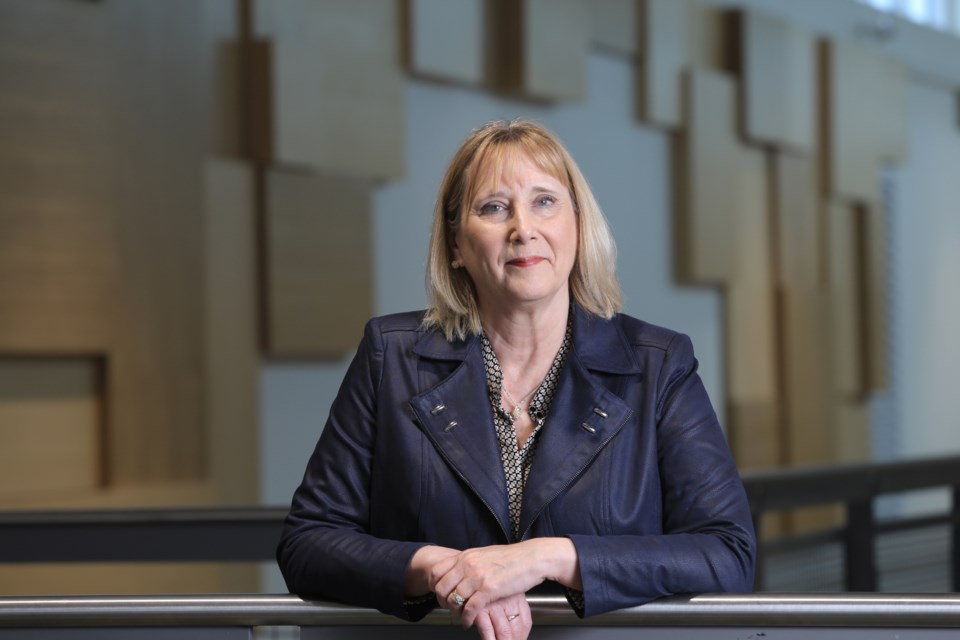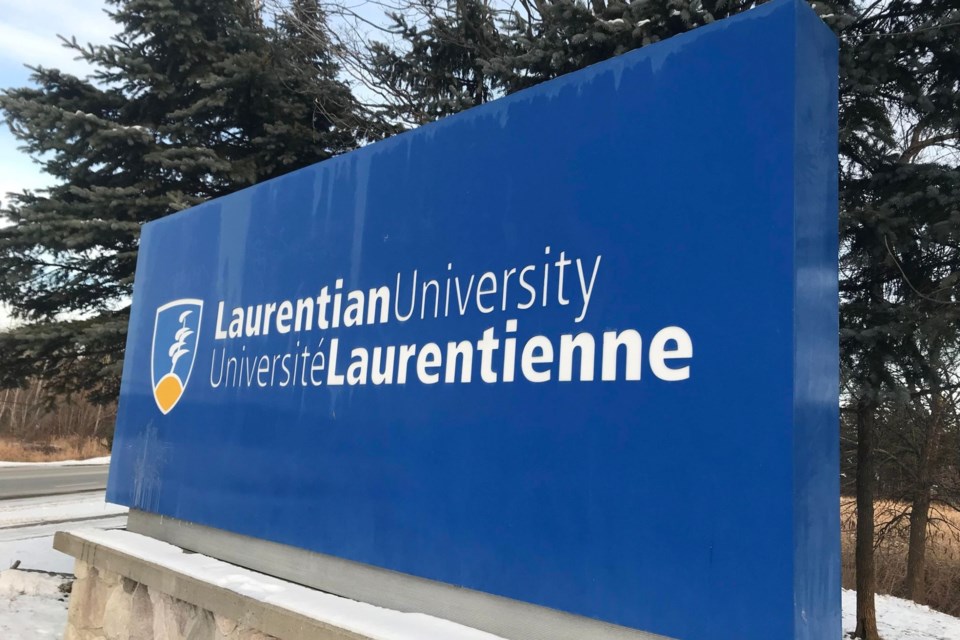With members reportedly concerned about “speaking freely” in Laurentian University’s senate due to media “recording and using words” spoken during meetings, the governing body is looking at changing the rules surrounding in-camera and closed sessions.
This according to Laurentian University president Lynn Wells, who has addressed the topic in a couple of recent meetings.
A discussion about media coverage of the LU senate took place in the Nov. 26 senate executive (SENEX) committee meeting. Minutes of that meeting were published as part of the package for the Jan. 21 senate meeting.
From those high-level minutes, the consensus seemed to be that members want certain topics brought into closed session to avoid reporting by the media.
Sudbury.com is the only media outlet that regularly covers the meetings of Laurentian’s senate.
Our coverage has resulted in many stories about the university’s journey under insolvency in 2021 and 2022 and its aftermath, some that no other outlets covered.
We have also covered a variety of other important topics, including COVID-19 restrictions at the university and the cyber attack at Laurentian in the winter of 2024.
Some of our stories stemming from senate meetings have also focused on topics the university would consider positive, such as a new fellowship at LU set up by the late Northern Life owner Michael Atkins in 2024.
Under the topic labelled “possibility for in-camera sessions (or closed sessions),” Laurentian president Lynn Wells spoke at the aforementioned Nov. 26 meeting about “local media recording and using words spoke (sic) at senate.

“There has been some concern about speaking freely in senate because of this,” Wells said, according to the minutes. “Do we bring items in-camera to avoid this situation? If supported, when would be a good time to start?”
Ernst Gerhardt, deputy speaker of the Laurentian senate, suggested closed sessions rather than in-camera sessions.
“Suggesting closed session rather than in-camera (refers to completely confidential meeting/information), where the rules are slightly adjusted, only senators but without the confidential nature of the items discussed, concerned about ability to consult on items with non-Senators as a result,” said the summary of Gerhardt’s remarks.
Senate member Christina McMillan-Boyles reportedly said “agreed, quoted in media in the past.
“Conversation at senate about what you say and how to present discussions that are important but not meant for the media, closed session seems to be a good solution, in-camera does not provide a mechanism for feedback, not a best practice in all cases.”
Laurentian’s dean of arts, Jennifer Johnson, said she supported closed sessions as it “encourages free debate, how do we make this happen?”
Senate member Dan Scott said he “supports closed sessions, include high level minutes, without intimate details of the discussion, would be nice to spark a balance between the two.”
The bylaws for Laurentian’s senate (see item No. 8) already state that “all meetings of Senate shall be open, except that they may be closed by a vote of Senate or by a ruling of the Speaker.”
Recent meetings of LU’s senate have included several lengthy closed sessions.
During the Dec. 10 meeting, a presentation by consultants StrategyCorp on the 2025-2030 academic plan and strategic research plan preliminary plan frameworks was closed, as was a presentation on 2025-26 budget development by provost Malcolm Campbell.
The idea of closing the StrategyCorp presentation was actually also brought up at the Nov. 26 SENEX meeting, with Wells asking “are we OK with having the media present” for the session.
Eger said the information was “not ready for public consumption” and recommended using moving to a closed session “as a tool to avoid media exposure.”
Another presentation on the 2025-2030 academic plan and strategic research plan was also presented in a closed session at the Jan. 21 senate meeting.
Campbell provided his arguments for moving into a closed session about budget development during the Dec. 10 meeting.
“The reason for this is quite simple,” he said. “The budget is a work in progress. It's something that we are all engaged in, but as it is a work in progress, it's something that I think at this point in time should be viewed as a cake, not yet fully baked, and one that we want to have an open, collegial, transparent and fulsome discourse around, without necessarily having to share our thoughts at this point in time before we've had a chance to have that wholesome, open and collegial discussion.”
At that point, speaker Christine Lalonde said she could declare it a closed session, but before she did so, she asked for any hands of people opposed to a closed session. “And I’m seeing none,” she said, before moving the discussion into a closed session.
Given what the minutes say was discussed at the Nov. 26 meeting, we reached out to LU president Lynn Wells, asking for an interview on the situation. She instead responded, as Laurentian often does, by ignoring the interview request and providing a written statement.
We also offered the same opportunity to Laurentian senate speaker Christine Lalonde and vice-speaker Ernst Gerhardt. They did not reply to our email inquiry.
"Laurentian is modernizing its governance practices to strengthen the university's governing bodies and to ensure alignment with best practices,” Wells said, in her written statement.
“This includes developing clear, transparent guidelines about when a discussion might move into closed session or in camera. We recently completed this work with the Board of Governors, and those changes have since been endorsed by the Auditor General of Ontario.
“Closed sessions and in camera discussions are an important part of governance practice, especially when governance bodies are discussing documents that are subject to change, may contain information that is incomplete, or could reveal confidential information about the University's competitive position. In those circumstances, it's reasonable to move into a closed session or in camera.”
In her statement, Wells also clarified the difference between a closed and an in-camera meeting at LU’s senate.
“Closed sessions in the senate are those where only members of the Laurentian University community are included, and in camera sessions involve only voting senate members,” she said.
The topic was also raised by Laurentian University Faculty Association (LUFA) president Fabrice Colin during the Jan. 21 meeting of Laurentian’s senate, and Wells provided further clarification.
“Our intention is to bring forward new bylaw language that will enhance the language that currently exists,” Wells said.
“There is already language in the senate bylaws that allows for closed sessions with the approval of the speaker. In fact, we had just such a thing today.
“So what we will really want to do at SENEX is bring forward some guidelines to senate for consideration as bylaw changes, so that we can have more definition around when what sorts of matters would be considered in closed session and what might be considered in-camera sessions as well. So more to come.”
Heidi Ulrichsen is Sudbury.com’s assistant editor. She also covers education and the arts scene.




